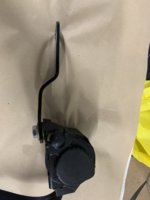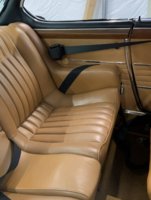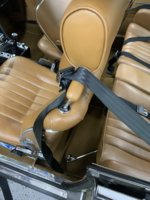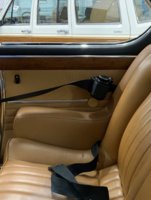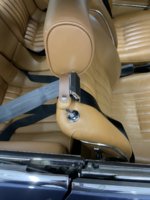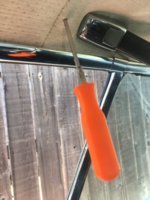As i am into vehicle regulations as a profession, I can see that these are independently tested and government certified. (you can deduct that from the numbers on the orange label). So I would trust without doubt that the belts are safe for use.
For use in countries that follow United Nations vehicle regulations (about 80 countries worldwide; EU, UK, Japan, Russia, & many others) these would be OK to use without doubt.
For US and Canadian users however I'm not sure if they are OK to use. It depends largely on:
1. import restrictions on non-FMVSS approved parts. I personally shipped a container full of child car seats to the US to be crash tested in a laboratory, and they were seized by customs and destroyed....before we could destroy them ourselves on our crash test track.
2. the presence and depth of routine technical inspections (such as the yearly technical inspections in Delaware or Hawaii).
If you can get these belts imported, and if no-one ever checks the technical state of your car, then I see little practical limitations.
I am not even sure if the US supplied E9's have different belt systems compared to the EU delivered ones. (do you guys in the US also have the orange label on there? I think not)
when you are replacing or retrofitting them.
It's a regulation aspect; in the US seat belts are mandatory safety equipment since ~1967.
Vehicle manufactures supplying new cars to the US nowadays would need their belts to be FMVSS 208 approved, which these are not.
Now our cars are old, and thus different (replacement / retrofitting) rules may apply; I simply not knowledgeable on how these rules are in the US.
I'm sure the company would know.




